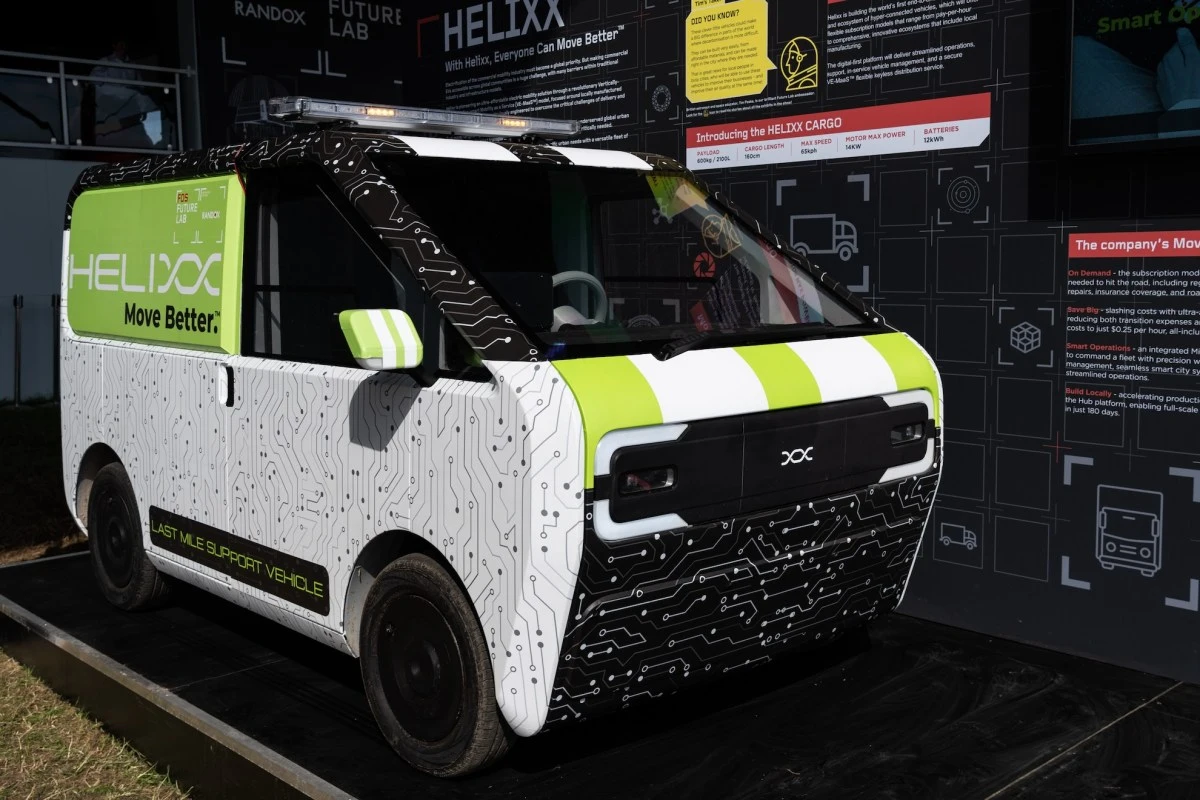When Helixx co-founder and CEO Steve Pegg looks at Daisy — the startup’s 3D printed prototype delivery van — he sees a second chance. And he’s pulling inspiration from McDonald’s to get there. The prototype, which made its global debut this week at the Goodwood Festival of Speed, is an interesting proof of concept.



Giving the article a quick read though, it does look like this isnt their real issue, since near the end it says that the final van isnt supposed to be printed, its to be made via more traditional means and the printing is just for the prototype. However, their model seems to be that they want to get other people to actually make their cars, but then sell all the manufacturing equipment and parts to those factories. Which seems dubious to me, because while they compare it to McDonald’s franchising, it misses that McDonalds both operates by selling a well known brand that customers might find more appealing than an unknown restaurant, which is a benefit that a startup wont have, and that doing this enables the company to not have to run tons of locations everywhere directly, which must be located that way for a restaurant, but dont for a product like a vehicle that can be made efficiently in a few centralized locations.
Honestly what this seems more like is an attempt to make something almost like an mlm scheme but for cars; its not exactly the same, since theyre not getting their customers to rope in new ones, but they are creating a situation where what they actually sell only has appeal in that the customer is promised that they can make money from then selling to other people, thus meaning that as long as the customer is sold on this idea, the company makes money regardless of if making these pretty bad sounding cars actually turns a profit or not. I dont suspect it will work for them, given their customer base is a much more limited supply of businesses with the right amount of factory space and not just gullible individuals, and if the inefficiency of their decentralized production means that their customers close up shop, that business will dry up. They might make a bit of money at first from roping in a few companies into this scheme, but Im skeptical that will last long.
Not 3d printing the final components makes it even more strange to be farming out final assembly, as the expensive part is the tooling and molds for making components in the first place, but said tooling can make a functionally unlimited number of parts once set up, so it really doesn’t make sense to try and sell it out when you could just fulfill all the orders with one set of molds at a central location, but at that point what are they left with? A kit car built by small shops with a subscription model and a hope that the small shops fall into the sunk cost fallacy instead of realizing their at best nowhere close to earning minimum wage and more likely losing money on net?
It’s extremely predatory, but I’m not really convinced it’s set up like an MLM though, since I can’t really see much incentive for the assemblers/middlemen to set up a proper downline. Feels more like an attempt at an Uber but for car manufacturering? or at least to make money off of would be entrepreneurs trying to set up a car assembly company.
Honestly though, mostly it feels like an attempt to grift investors in the standard silicon valley startup way, where you promise the moon to try and get established companies and venture capital to give you free money just in case you make it big, maybe IPO or get bought out completely, and worse case you just get to keep the extravagant salary you pay yourself and your friends for as long as you can keep the grift going.